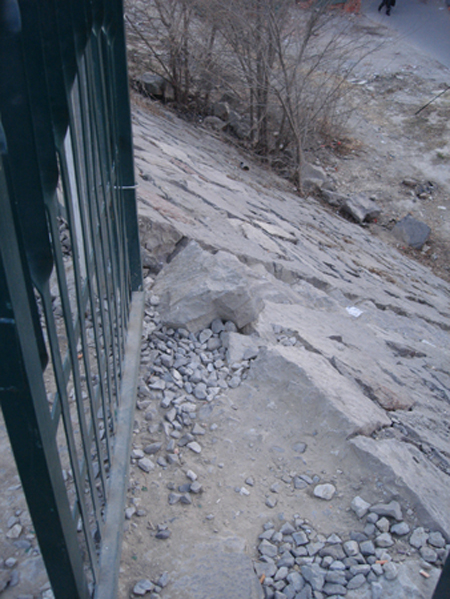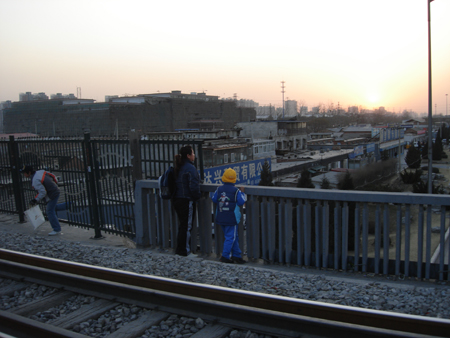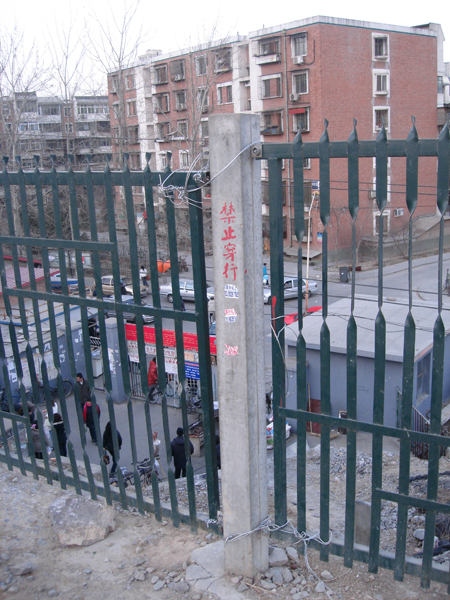Sat 2 Aug 2008
Beijing nearly ready for the Olympics… if the games were held today the weather would be perfect!!
Posted by + mOdOk + under China news , Currents , Life in Beijing , Sustainability , olympics[2] Comments
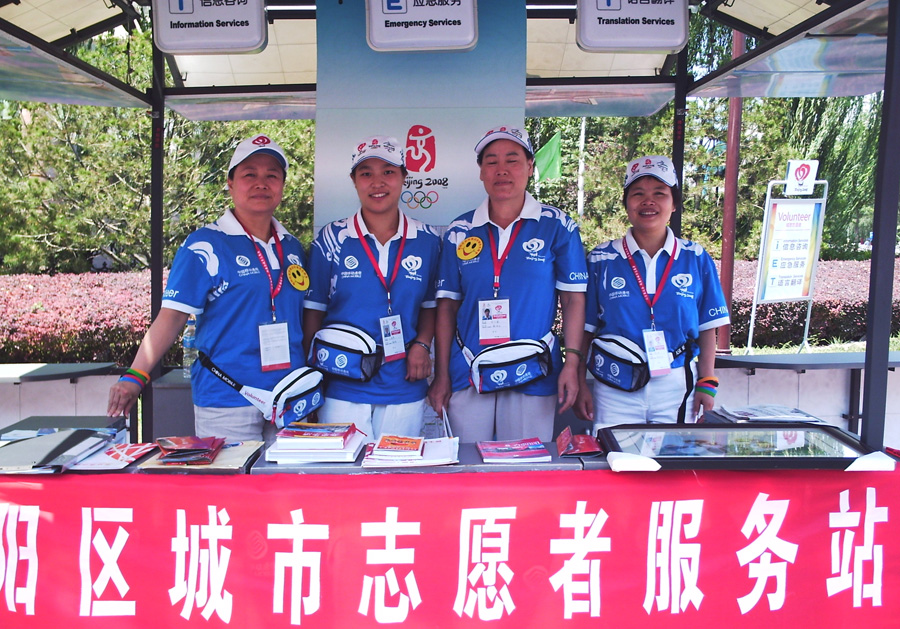
Olympic volunteers have shown up in booths all over the city
To all the naysayers about the air quality in Beijing for the Olympics, all I can say is that if the games were held right now, the weather would be incredible. Yesterday was one of the finest days I’ve ever enjoyed in Beijing with wonderfully clear air and great visibility. I could see both the western and northern mountain ranges with amazing clarity! I spent the day running errands all over town and therefore found myself riding my motorbike for a goodly portion of the day. The temperature was perfect!! The air quality index was “Excellent” at 27, the best I have ever seen. Today was also a glorious day, but HOT!

When it comes to air quality in Beijing for the Olympics, there have been quite a few naysayers indeed. It seems many in the western press were publishing pictures of last week’s hazy days as evidence of poor air quality, failing to mention that there was quite a bit of sporadic precipitation that had evaporated into the air to make the haze. The Beijing government was quick to point out that haze is a natural phenomenon common throughout China. I am with the Beijing government on this one. There is a big difference between haze and smog, and anyone buzzing around town on two wheels can certainly tell the difference! China has always been hazy, as anyone who has ever seen a Chinese painting should be able to discern. Where does all that mystical mist come from in those beautiful paintings? Smog? In the Tang Dynasty? I don’t think so. I may be the first to voice my cynicism when certain negativities are downplayed, but I must say that the air quality this past week has really, really improved, no doubt largely in part the vastly reduced number of vehicles on the streets. I hope that after the games are over they keep the regulations in place limiting access to Beijing roads by even or odd numbered plates only able to drive on even or odd days. Of course, the over 300,000 vehicles from state-owned enterprises that have been restricted throughout the games will most likely hit the streets again when they end. No matter. I am truly enjoying the fresh air while it lasts.
Other signs that Beijing is fully prepared for the games:
1. Security measures have become routine. I went to an opera (Tea: A Mirror of Soul) at the National Center for Performing Arts and did not feel entirely put out by the security search to enter the massive hall. People have grown accustomed to these measures, and some efficiencies have been developed by those carrying out the searches.
2. Hordes of volunteers have emerged. Having served as an Olympic and Paralympic volunteer myself during the Salt Lake games, I know a thing or two about the procedures and organizational structure, and I can attest to the fact that Beijing has a definite advantage – neighborhood committees!
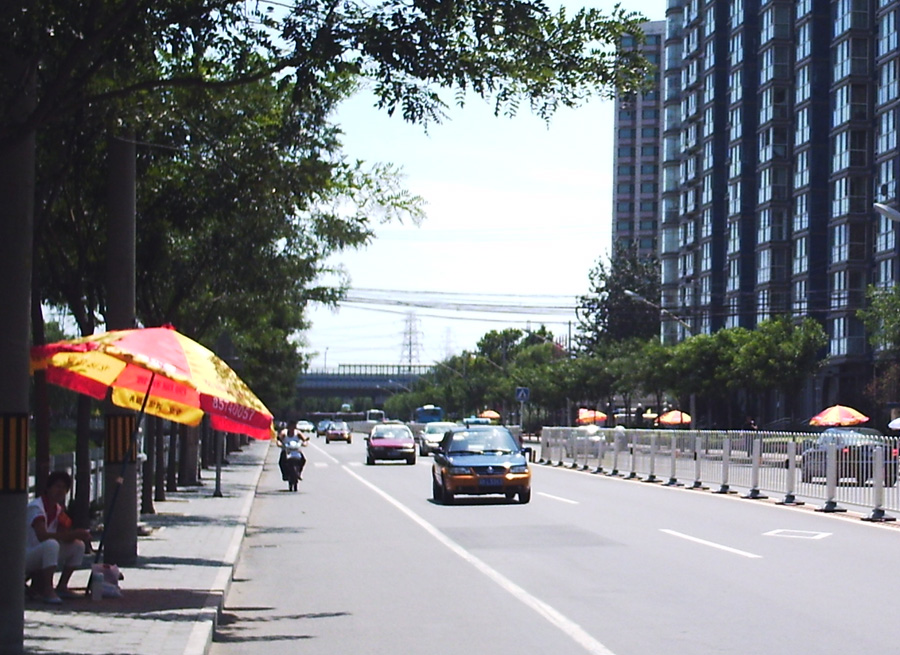
Neighborhood Olympic volunteers on every street corner and even in between… one under every umbrella!
Everyone in China is organized into groups, traditionally according to work place or school. Housing has also traditionally been assigned by the company, though that is rapidly changing. As everyone is assigned to unit, each unit has a committee and each neighborhood has an organized “neighborhood watch” committee, who are basically retired people who sit around and spy on everyone going in and out of the community. They are actually empowered to do so by the local communist party! This level of organization comes in handy from time to time, especially when the government wants to implement an information campaign. Now, the red arm bands have been replaced with red and white volunteer outfits and you can literally find them on every street corner throughout the city. Wow!
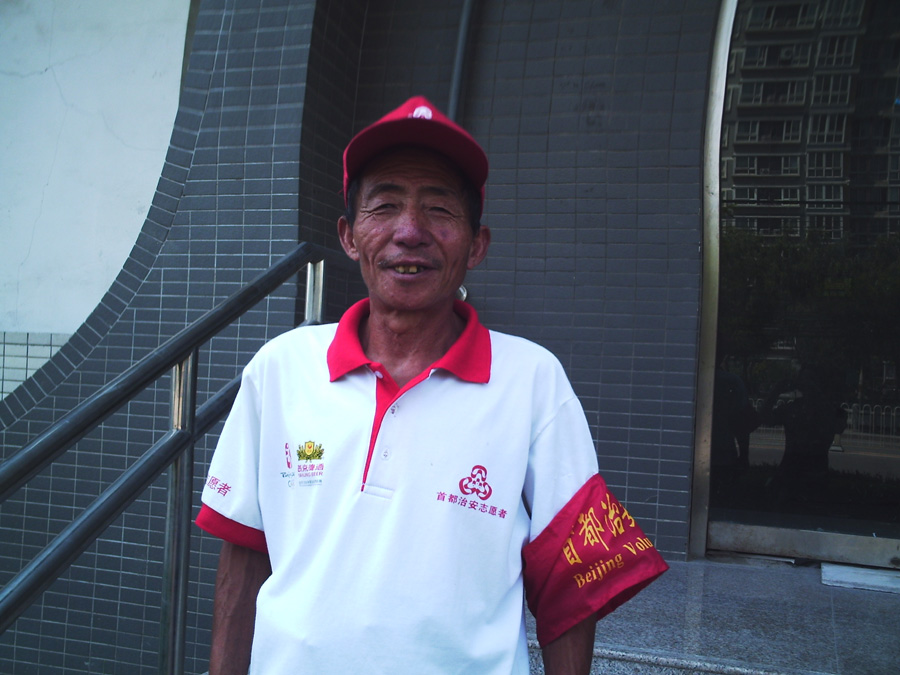
Neighborhood Olympic volunteer
3. An even more amazing display of flowers on the street than usual. I’m always amazed how the flower displays get more and more impressive every year around National Day, but this year they have pulled the stops to put up impressive flower stands along side of all the major roads and in many neighborhoods.
4. Cosmetic surgery to all of the older building fronts was completed in a timely fashion. If you are one of the lucky few able to visit Beijing for the games, you will notice that nearly every building has the same matte silver tile surface and brand new signage, thanks to a beautification plan that was implemented on a massive scale that can only happen in China.


